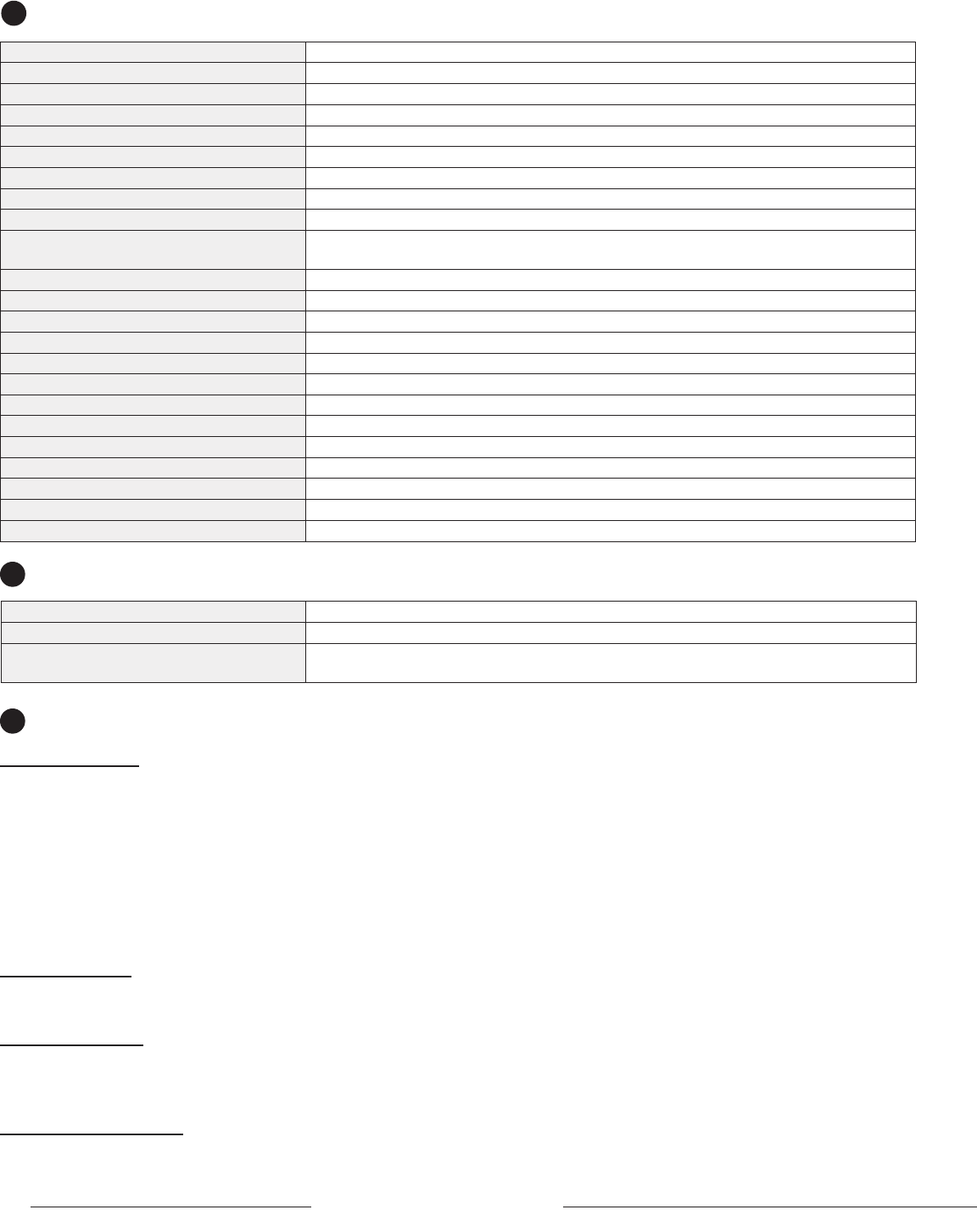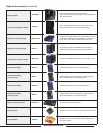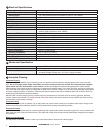
V-R84DP-2C Users Guide
4
5
Electrical Specifi cations
Display (Viewing Area) 8.4 Inch diagonal (170.4mm w x 127.8mm h)
Screen Aspect 4:3/16:9 switchable
Viewing Angles 160° with protective screen and treatment (130°H x 120°V native)
Contrast Ratio 500:1
Dot Pitch .213mm square pixel
Pixel Response 10ms rise/25ms fall
Backlight Type / Life Field Replaceable CCFL (50,000 hour half life)
Brightness 500 cd/m²
LCD Screen Treatments Anti Reflection, Anti Glare, Hardcoat
Protective Screen 0.118” (3mm) thick Optical Grade Polycarbonate with Anti-Glare and Anti-Abrasion
coatings. (600 Cheesecloth mil-M-13508C)
Estimated MTBF 5 years of 24/7/365 operation
System NTSC/PAL auto recognition
Inputs 2 Analog Composite (BNC) Self Terminating
Active Outputs 2 Composite Video (BNC) Available when power is applied to monitor
Color temperature D65 (6500° Kelvin)
Color Gamut SMPTE-C
Luma Linearity Typical +/- 3% with 5 ire increments (0 to 10 ire)
Power Required 10.4 to 16.8 VDC
Power Consumption Approx. 15 watt nominal
Operating Temperature 32°F to 120°F (0°c to 50°c)
Storage Temperature -4°F to 120°F (-20°c to 50°c)
Compliance
ӥ, FCC-Class A, ANSI-63.4 (Certificates on file)
RoHS WEEE/Environmental Do not dispose. Return to Manufacturer or Authorized Recycle Facility
6
Mechanical Specifi cation
Dimensions 9”w x 6.875” h x 2.5” d (228.6mm x 174.6mm x 38.1mm)
Approx. Weight 3.3 lbs
Power Consumption 14-10 VDC, 15 Watt nominal
(Universal Voltage 5.0Amps max - UL Class 2 supply included)
7
Faceplate Cleaning
Faceplate Cleaning
When cleaning the faceplate it is very important to use non-abrasive and ammonia free cleaning agents and a clean micro fi ber
cloth. Do not use paper towels. Paper towel fi bers are coarse and may scratch the surface of the Polycarbonate faceplate.
Paper towels may also leave streaks on the surface. Antistatic and fi ngerprint resistant cleaning agents are recommended.
Wash protective cover with a solution of mild soap or detergent and lukewarm water. Use a clean soft cloth, applying only light pres-
sure. Rinse with clean water and dry by blotting with a damp cloth or chamois. Grease, oil or tar may be removed with a good grade
of hexane, aliphatic naphtha, or kerosene. These solvents may be obtained at a paint or hardware store and should be used in ac-
cordance with manufacturer’s recommendations.
DO NOT USE: window cleaning sprays, kitchen scouring compounds or solvents such as acetone, gasoline, benzene,
alcohol, carbon tetrachloride, or lacquer thinner. These can scratch the sheet’s surface and/or weaken the sheet causing
small surface cracks called “crazing.”
Faceplate Dusting
Dust with a soft, damp cloth or chamois. Dry or gritty cloths may cause surface scratches and create a static electric charge on the
surface. Neutralizing static electricity effects by using recommended cleaning and polishing practice.
Faceplate Polishing
Protect and maintain surface gloss by occasional polishing with a good plastic cleaner and polish. Apply a thin, even coat with a soft
clean cloth and polish lightly with cotton fl annel. Then wipe with a damp cloth to help eliminate electrostatic charges that can attract
dust particles
Marking on the Faceplate
Use SHARPEE or equivalent marker. Clean as per instructions with an ammonia free cleaning agent.






